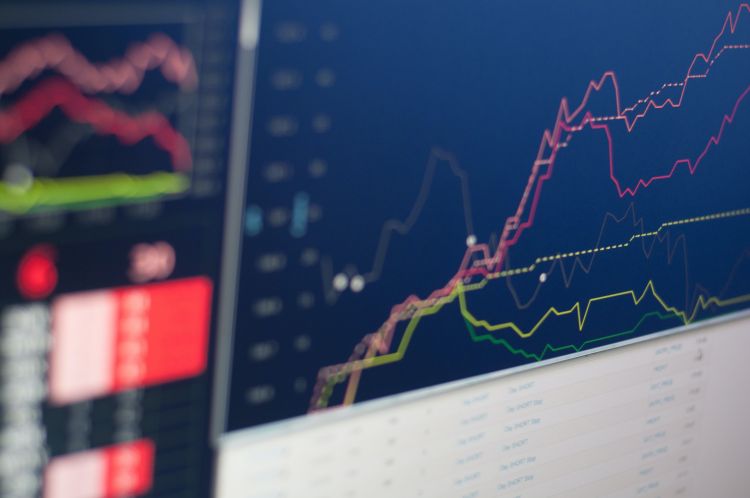
As the global economy emerges from a confluence of unprecedented crises—from the COVID-19 pandemic to geopolitical tensions and an energy crisis — its trajectory has been anything but predictable. Recent updates from the International Monetary Fund’s World Economic Outlook offer a cautiously optimistic view for the immediate future, projecting a global economic growth rate of 3.2% for 2024 and 2025. This resilience is noteworthy, particularly given the complexities of recovery, inflationary pressures, and structural challenges facing both advanced and emerging economies.
The global economy is marked by significant divergences. Advanced economies are expected to experience a slight acceleration in growth, while emerging markets face a modest slowdown. For instance, the US has shown robust recovery, outpacing its pre-pandemic economic activity, primarily fuelled by strong productivity and employment growth. However, such growth comes with overheating risks, necessitating a careful monetary response.
READ | Boosting exports: India must bolster FTAs, labour intensive sectors
In contrast, Europe’s recovery is tepid, with growth projections modest at best. High wage growth and persistent services inflation could delay economic stabilisation. The European Central Bank faces the delicate task of balancing monetary tightening with the need to support a sluggish economy.
India and China present contrasting trends
China, the second largest economy after the US, confronts its own challenges. The downturn in its property sector and a broader economic slowdown reflect deeper structural issues that could have ripple effects far beyond its borders. The IMF’s cautious revision of China’s growth projections underscores the uncertainty surrounding its economic recovery.
India presents a bright spot in the global economic narrative. The IMF’s revised forecast suggests robust growth, driven by strong domestic demand and favourable demographics. However, the nation also faces potential headwinds such as rising oil prices and global supply chain disruptions. Nevertheless, with projected growth rates of 6.8% and 6.5% for the next two fiscal years, India’s economic prospects appear strong, buoyed by a stable inflation outlook and a resilient banking sector.
Additionally, demographic trends play a crucial role in shaping the economic future. In Sub-Saharan Africa and parts of Asia, burgeoning youth populations could translate into demographic dividends, provided there is adequate investment in education and job creation. Conversely, ageing populations in advanced economies pose challenges to pension systems and healthcare infrastructure, potentially straining public finances. Recognising and preparing for these demographic shifts will be essential for sustaining economic growth and social stability in the coming decades.
Globally, inflation remains a central concern. While the immediate post-pandemic inflation surge has abated, the path back to target inflation levels is fraught with obstacles. Recent upticks in oil prices and persistent services inflation highlight the ongoing risks. Monetary policies across the globe have been instrumental in anchoring inflation expectations, but the journey to stable prices is incomplete and uneven across regions.
Shaping the future of global economy
Policy decisions will be crucial in maintaining economic stability and fostering growth. Key priorities include managing inflation, supporting economic recovery without exacerbating fiscal deficits, and addressing structural challenges that impede growth.
For low-income countries, the challenges are particularly acute. These nations continue to grapple with the economic fallout from the pandemic and high debt levels. Structural reforms and international cooperation will be vital in supporting these economies through investment in infrastructure and human capital.
Moreover, the role of technological advancements, particularly artificial intelligence (AI), in shaping economic futures cannot be overstated. AI offers transformative potential across sectors by boosting productivity and streamlining operations. However, it also presents challenges, such as potential disruptions in labour markets and privacy concerns. Countries that invest in robust digital infrastructures and adapt their educational systems to meet the demands of a digitised economy will likely enjoy competitive advantages. Thus, it is crucial for policymakers to balance regulation and support for innovation to harness the benefits of technology while mitigating its risks.
Embracing a green future
Amid these challenges, the imperative for a green transition remains urgent. The global shift towards sustainability presents both challenges and opportunities. Advanced economies and China are leading in green investments, but more needs to be done globally, especially in emerging markets and developing countries. Financing and technology transfer will be critical in supporting these transitions.
Furthermore, the evolving international trade order also warrants attention. The current trend towards de-globalisation and increased trade barriers poses a risk to long-term economic efficiency and growth. As supply chains reconfigure and countries reassess their trade dependencies, there is a need for policy agility to navigate these changes. Strengthening trade relationships and crafting cooperative trade agreements can help mitigate the negative impacts of these shifts and promote a more resilient global trade ecosystem.
The global economy presents tough challenges and great opportunities. While the resilience of the global economy offers hope, the path forward requires careful navigation, robust policy frameworks, and renewed commitment to multilateral cooperation. The decisions made today will not only shape the immediate economic recovery but also determine the long-term sustainability and inclusivity of global growth. As such, the world stands at a pivotal moment, with the potential to redefine the contours of global economic governance in an era of rapid change and uncertainty.

